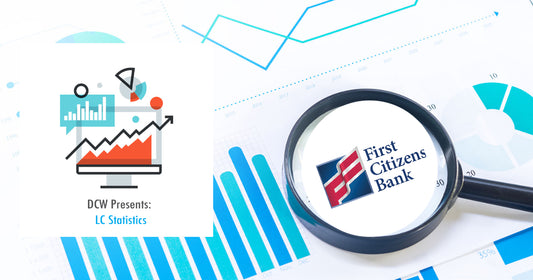Categories
- Anti Money Laundering
- authenticated
- automatic extension
- bill of lading
- compliance
- Counter Terrorist Financing
- extension
- financial crime
- Financial Guarantee
- Guarantee
- Independent Guarantee
- Iran
- ISP98
- LC
- LC Law
- LC Statistics
- Red Flags
- Sanctions
- Standby LC
- SWIFT
- Trade Based Financial Crime Compliance
- tranport documents
- UCP500
- UCP600
- wrongful dishonor
AML Hot Topics to Watch Out for in 2019
At the American Bankers Association/American Bar Association's Financial Crimes Enforcement Conference earlier this week in Maryland, experts discussed the state of anti money laundering and compliance, focusing on pressing issues. Here are a few highlights from the presentations.
AML and International Corruption - Minding the News
As all BSA/AML decision making is inherently risk-based, financial institutions must have strategies for managing reputational and regulatory risks arising from international corruption. These risks generally propagate from negative news and can impact financial institutions, irrespective of size. One panel explored several ongoing examples of international corruption including the 1MBD case, the Nigerian Oil Scheme and the arbitrage PDVSA currency scheme. In the face of such developments, financial institutions can initiate internal investigations which could include “wire pulls” to determine whether the negative news subject is associated with foreign correspondent banks when not otherwise an immediate client. These network-type or “data-fusion” analyses can illuminate the extent of illicit activity and help financial institutions calculate reputational and regulatory risks. While not all negative news stories justify severing client relations, mitigating risks arising from these issues can also help to propose adjustments to due diligence processes.
Artificial Intelligence and Financial Crimes Risk Management
In its effort to counteract bad actors engaged in financial crime, the banking industry is actively pursuing strategies to get “better, cheaper, faster”. Enter the world of AI and robotics. AI represents the “holy grail” that banks are striving to get to. Machine Learning is considered foundational and is currently being utilized. Robotics are thought of as the “hands” which enable movement and application of these advancements. Banks of any size can benefit from machine learning today. As banks introduce technology into their systems, they will discover more areas that need attention. In this space, everything banks do depends on data. There will always be identified areas to adjust and refine. Banks not already involved were urged to start simple.
AML Issues Facing Foreign Banks
While U.S. banks must follow and stay up to date on BSA/AML regulations to avoid enforcement actions, the same applies to their international correspondent banks. This conversational session probed best practices for financial institutions of various sizes.
Large Bank Perspective: Given the global reach of its bank’s operations and considerable resources, one large bank representative explained its approach of sending BSA/AML instructor teams to each of its correspondent financial institutions for training.
Regional/Small Bank Perspective: Where possible, a suggestion was put forth that either a BSA/AML expert go individually to train correspondent institutions, or even train and send an agent instructor. One bank has developed an “AML Steering Committee” wherein multiple stakeholders meet regularly to discuss updates to the BSA/AML regime in order to disseminate crucial adjustments for the bank and its correspondent relations.
More AML and Compliance Resources
For the ultimate certification in trade finance compliance that covers anti money laundering, counter terrorist financing, commercial fraud, weapons of mass destruction, and more, look no further than the Certificate in Trade Finance Compliance (CTFC). Issued jointly by the London Institute of Banking & Finance, us here at IIBLP, and Coastline Solutions (technology partner to the ICC), the CTFC certification provides distinction for trade personnel in this increasingly pressing aspect of the job.
Additionally, visit our Sanctions Primer, our Trade Based Money Laundering Primer, our writeup on the BAFT Money Laundering Paper, and Back to Back LCs.






